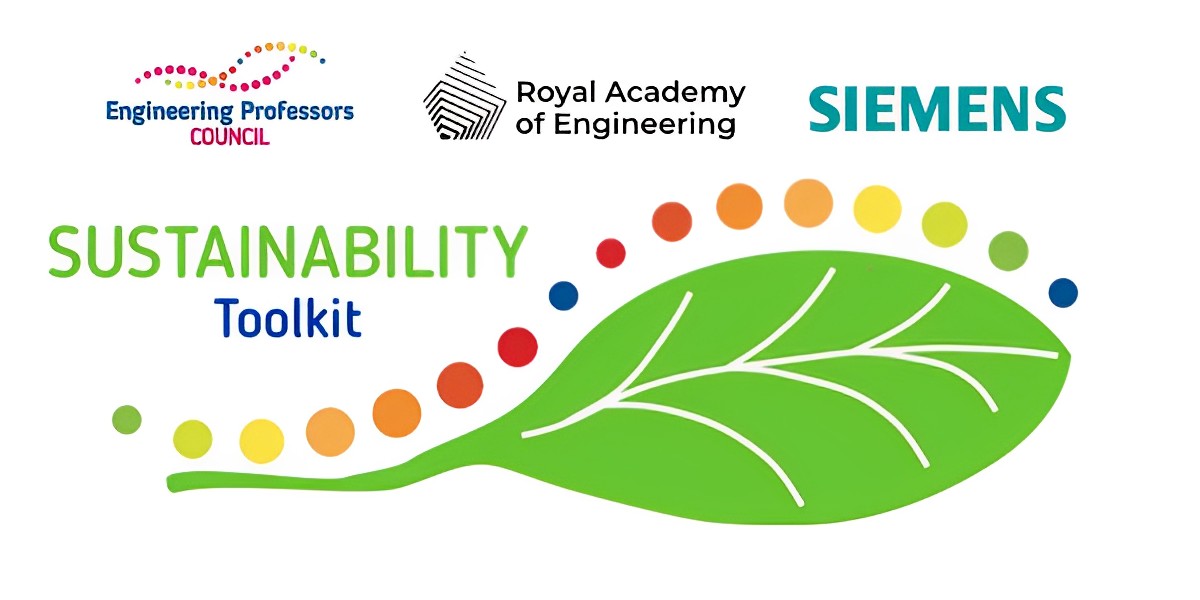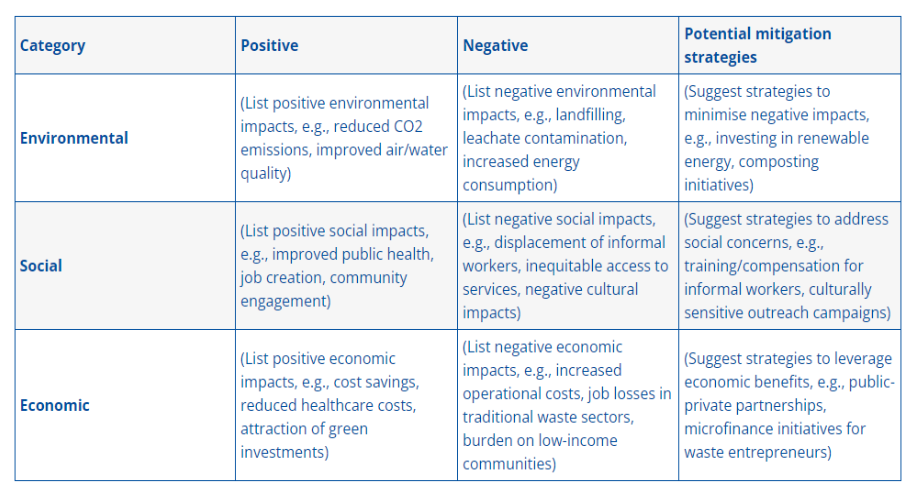Author: Onyekachi Nwafor (CEO, KatexPower).
Topic: Waste management.
Tool type: Teaching.
Relevant disciplines: Environmental; Civil; Systems engineering.
Keywords: Sustainability; Environmental justice; Water and sanitation; Community engagement; Urban planning; Waste management; Nigeria; Sweden; AHEP; Higher education.
AHEP mapping: This resource addresses two of the themes from the UK’s Accreditation of Higher Education Programmes fourth edition (AHEP4): The Engineer and Society (acknowledging that engineering activity can have a significant societal impact) and Engineering Practice (the practical application of engineering concepts, tools and professional skills). To map this resource to AHEP outcomes specific to a programme under these themes, access AHEP 4 here and navigate to pages 30-31 and 35-37.
Related SDGs: SDG 6 (Clean Water and Sanitation); SDG 11 (Sustainable Cities and Communities); SDG 13 (Climate Action).
Educational level: Beginner.
Learning and teaching notes:
This case study juxtaposes the waste management strategies of two cities: Stockholm, Sweden, renowned for its advanced recycling and waste-to-energy initiatives, and Lagos, Nigeria, a megacity grappling with rapid urbanisation and growing waste challenges. The contrast and comparison aim to illuminate the diverse complexities, unique solutions, and ethical considerations underlying their respective journeys towards sustainable waste management.
This case is presented in parts. If desired, a teacher can use Part one in isolation, but Parts two and three develop and complicate the concepts presented in Part one to provide for additional learning. The case study allows teachers the option to stop at multiple points for questions and/or activities, as desired.
Learners have the opportunity to:
- Understand the role of UNSDGs in urban planning and waste management policy.
- Analyse and apply diverse waste management strategies considering socio-economic and cultural contexts.
- Advocate for inclusive, equitable, and environmentally conscious waste management solutions.
Teachers have the opportunity to:
- Introduce concepts relating to circularity
- Link real-world and systemic engineering problems with SDGs
- Introduce aspects of social, environmental, and economic sustainability
Learning and teaching resources:
Websites:
- UN Habitat: SDG 11 – Sustainable Cities and Communities
- World Bank: Waste Management
- UN Environment Programme: Waste Management
- ESG the report – An in-depth look at what are the three pillars of sustainability?
Government publications:
Journal articles:
- Urban waste management in developing countries: Challenges and opportunities (Waste Management & Research)
- Tisserant, A. et al. (2017) ‘Solid waste and the circular economy: A global analysis of waste treatment and waste footprints’, Journal of Industrial Ecology, 21(3), pp. 628–640.
Part one:
You are a renowned environmental engineer and urban planner, specialising in sustainable waste management systems. The Commissioner of Environment for Lagos invites you to analyse the city’s waste challenges and develop a comprehensive, adaptable roadmap towards a sustainable waste management future. Your mandate involves:
- Assessing the current state of waste generation, collection, and disposal in Lagos.
- Evaluating the exemplar Stockholm’s waste management strategies and identifying transferable best practices.
- Examining the socio-economic and cultural context of Lagos and its specific waste management needs.
- Devising a holistic waste management framework that prioritises environmental sustainability, social equity, and community engagement.
Optional STOP for questions and activities:
- Discussion: Compare and contrast Lagos’s current waste management with Stockholm’s system, considering factors like efficiency, technology, and environmental impact.
- Activity: Map the various stakeholders involved in Lagos’s waste management system, identifying potential partners and challenges for collaboration.
- Discussion: Explore the social and economic dimensions of waste management in Lagos. How does waste affect different communities and individuals?
Part two:
As you delve deeper, you recognise the multifaceted challenges Lagos faces. While Stockholm boasts advanced technologies and high recycling rates, its solutions may not directly translate to Lagos’s context. Limited infrastructure, informal waste sectors, and diverse cultural practices must be carefully considered. Your role evolves from simply analysing technicalities and policies to devising a holistic strategy. This strategy must not only champion environmental sustainability but also champion social equity, respecting the unique socio-economic and cultural nuances of each urban setting. You must design a system that:
- Promotes waste reduction and source separation at the community level.
- Empowers and integrates the informal waste sector through training and formalisation
- Ensures access to safe and efficient waste collection for all, particularly underserved communities.
- Leverages sustainable technologies and practices (e.g., composting, biogas) while remaining adaptable to resource constraints.
Optional STOP for questions and activities:
- Analysing existing waste management policies
- City: [Choose Stockholm or Lagos]
- Existing policy: [Specify the specific policy you are analysing]
Adaptability for diverse contexts:
- Can this policy be easily adapted to other cities with different socio-economic and cultural contexts?
- What are the key challenges and opportunities for adaptation?
- What resources and support would be needed for successful adaptation?
- What technical knowledge and skills are required to enact the policy? What local industries and partners will be critical to success?
Discussion prompts:
- To what extent does the existing policy prioritise environmental sustainability, social equity, and economic feasibility?
- What role can communities and diverse stakeholders play in shaping and implementing waste management policies?
Part three:
While implementing your strategy, you encounter enthusiasm from some sectors but also resistance from others, particularly informal waste workers and industries whose livelihoods may be impacted. Balancing immediate socio-economic concerns with long-term environmental benefits becomes crucial.
Optional STOP for questions and activities:
- Discussion: Explore the ethical considerations of implementing a sustainable waste management system that might have short-term negative impacts on certain groups. How do you balance long-term benefits with potential immediate drawbacks?
- Activity: Investigate real-world examples of cities transitioning to sustainable waste management and the strategies they used to mitigate negative socio-economic impacts.
This work is licensed under a Creative Commons Attribution-ShareAlike 4.0 International License.
Any views, thoughts, and opinions expressed herein are solely that of the author(s) and do not necessarily reflect the views, opinions, policies, or position of the Engineering Professors’ Council or the Toolkit sponsors and supporters.
To view a plain text version of this resource, click here to download the PDF.






